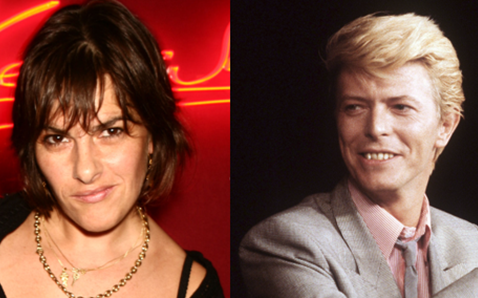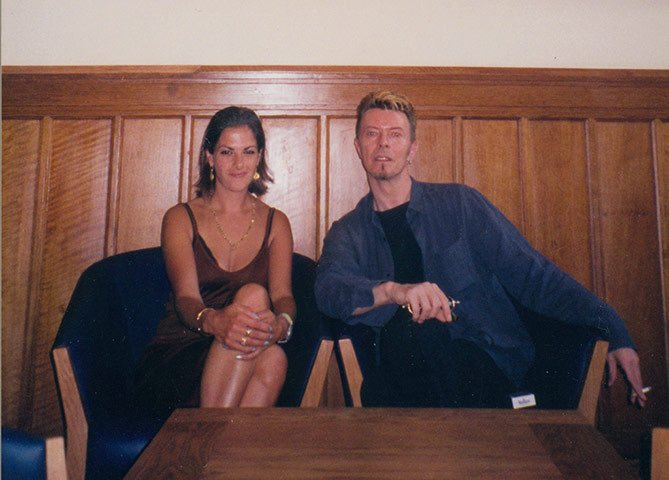People
That Time David Bowie and Tracey Emin Talked Drugs, Art, and Fame
Bowie admitted that after experiencing drugs, the work is never the same.

Bowie admitted that after experiencing drugs, the work is never the same.

Cait Munro


Photo: Twitter/@emininternation.
In 2001, when David Bowie and Tracey Emin were brought together for a conversation, Bowie pretty much started by asking Emin, “What are you wearing right now?” To which the provocative artist responded among other things, “expensive underwear from Agent Provocateur.” And they were just getting started.
The two British cultural icons, who were doing their interview over email for The Guardian, around the time that Bowie was setting up a virtual gallery for art students, went on to chat about drugs, art, the effects of drugs on one’s art, and a growing (at the time) phenomenon that Bowie termed “Tabloid Nation.” Here are a few of our favorite snippets from their chat.
Tracey Emin: Throughout my life your music has had a big influence on me. I remember at the age of 14 vomiting at the end of Rock’n’Roll Suicide after drinking a bottle of sherry, and in later years sailing down the Nile listening to Young Americans on a Walkman full blast.
David Bowie: I also remember vomiting at the end of Rock’n’Roll Suicide. I remember vomiting at the end of quite a few songs.
…
TE: I once quoted to you the line from “The Man Who Fell to Earth” where you say to your driver, “Slow down, Arthur.” At the time you said you had no memory of this line; you were on uppers, downers, a concoction of drugs just to keep you going. Do you think being “out of it” adds to the creative process, or is this a myth? I mean, Van Gogh and absinthe, Victorian writers and opium, rock stars and cocaine.
DB: Mmm… having experienced drugs, the work is never the same again. Station to Station was a drug album. Low and Heroes were not. Never Let Me Down was. It’s all contradictory.
…
TE: Did you always want fame? Is it something you’d wish on your children?
DB: I certainly fancied my own spoonful of it when I was young. I was more than downcast to find that fame brought nothing more than good seats in a restaurant. There is nothing there to covet.
Perhaps this is why Bowie famously appreciated New York so much, confessing to Vulture in 2003 that “[p]eople here are very decent about their interactions with well-knowns. I get the occasional “Yo, Bowie,” but that’s about it.”
Emin and Bowie’s meeting of the minds also produced an admission from Emin that it was Bowie’s cover art for the 1979 album Lodger that piqued her interest in art history.
Following Bowie’s death on January 10, Emin tweeted: “So long my friend. Thank you for the sound track of my life.”
Read the full chat. You won’t be disappointed.